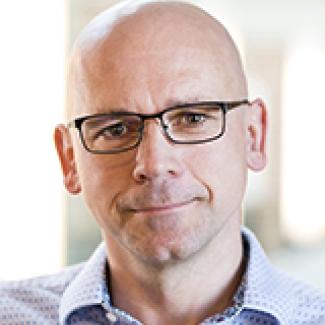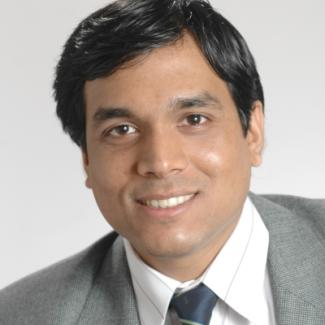
In response to the COVID-19 pandemic, Simons Institute events are currently taking place online. Please register to receive the Zoom webinar access details.
This workshop will take place Mondays from 8:30 a.m. to 10:30 a.m. (PDT).
The workshop aims to bring together researchers interested in the broad area of synthesis of computational models and systems. Software controls an increasingly large part of infrastructure and cyber-physical systems (CPSs), such as sensors, cars, and data centers. On the one hand, we therefore need to automate software development as much as possible, which is facilitated by model-based design. On the other hand, we need to automate model and system creation, as well as its adaptation and repair.
The synthesis problem refers to the collection of algorithmic techniques that automatically construct software artifacts (models, controllers, programs) from specifications or behavioral observations. The specifications are usually stated in a logical formalism and can be quantitative, and behavioral observations include examples of inputs and outputs and time series data. One advantage of synthesis is that it yields an artifact that is correct by construction, which avoids the need to fix the bug once it has been found using verification. An issue with synthesis is that it does not have a canonical statement of the problem, which has given rise to a variety of approaches, each characterized by the type of inputs considered: reactive synthesis, template-based program synthesis, controller synthesis from (quantitative) temporal logic specifications, syntax-guided synthesis, counterexample-guided inductive synthesis, assume-guarantee component synthesis, and parameter synthesis. An emerging area is program synthesis and repair using machine learning, which encompasses automata learning and the use of deep and reinforcement learning.
The research area of synthesis has seen great progress in the past decade, stemming from novel algorithms and progress in neighboring areas such as constraint solving, game theory and planning.
This workshop will build on these advances and will aim to build connections between different subareas of synthesis: from program synthesis and model synthesis to methods based on machine learning. The challenging problem areas that are synthesis for networks and distributed systems are the primary target applications.
Yehia Abd Alrahman (Gothenburg University), Parosh Abdulla (Uppsala University), Erman Acar (Vrije Universiteit Amsterdam), Edgar Aguilar (AIT Austrian Institute of Technology), Ashwani Anand (Chennai Mathematical Institute), Shaun Azzopardi (Gothenburg University), Suguman Bansal (University of Pennsylvania), Ezio Bartocci (Technical University of Vienna), Sahil Bhatia (UC Berkeley), Shayari Bhattacharjee (Saarland University), Ras Bodik (University of Washington), Mikołaj Bojańczyk (University of Warsaw), Maria Paola Bonacina (Università degli Studi di Verona), Ahmed Bouajjani (U. Paris 7), Antonio Casares (Université de Bordeaux), Supratik Chakraborty (IIT Bombay), Kevin Chang (USC), Daniela Cialfi Cialfi (Università degli Studi G.d'A), Norine Coenen (Saarland University), Thomas Colcombet (Université Paris Diderot - Paris 7), Michael Collins (Laboratory for Advanced Cybersecurity Research), Diana Costa (University College London), Emir Demirović (TU Delft), Antonio Di Stasio (University of Rome (La Sapienza)), Rayna Vasileva Dimitrova (University of Sheffield), Endre Eros (Chalmers University of Technology), Javier Esparza (Technische Universität München), Kousha Etessami (University of Edinburgh), Azadeh Farzan (University of Toronto), Nathanaël Fijalkow (CNRS), Bernd Finkbeiner (Saarland University), Dror Fried (The Open University of Israel), Orna Grumberg (Technion), Shibashis Guha (), Jana Hoffmann (CISPA Helmholtz Center), Alexandre Honorat (INSA Rennes), Arthur Jaquard (IRIF), Samuel Judson (Yale University), Sebastian Junges (University of California, Berkeley), Marcin Jurdzinski (University of Warwick), Onur Kara (Hindsight Technology Solutions/UMD), Brian Kempa (Iowa State University), Bartosz Klin (University of Warsaw), Alexander Kozachinskiy (University of Warwick), Jędrzej Kołodziejski (University of Warsaw), Jonas Krook (Chalmers University of Technology), Hillel Kugler (Bar Ilan University), Manish Kumar (Ben-Gurion University of the Negev), Viktor Kuncak (EPFL), Antonín Kučera (Masaryk University), RATAN LAL (Kansas State University), Ranko Lazic (University of Warwick, Department of Computer Science), Karoliina Lehtinen (University of Liverpool), Anthony Lin (TU Kaiserslautern), Anna Lukina (Institute of Science and Technology Austria), Stephen Luterman (Flatiron Analytics), Rupak Majumdar (Max Planck Institute for Software Systems; International Computer Science Institute), Nicolas Markey (CNRS), Mauricio Martel (Gothenburg University), Alexandra Martins da Silva (University College London), Andrew Mason (UC Berkeley), Umang Mathur (University of Illinois at Urbana-Champaign), Valentin Mayer-Eichberger (Technische Universität Berlin), Stanislav Mazurenko (Masaryk University), Niklas Metzger (CISPA Helmholtz Center), Yifei Min (Yale University), David Mitchell (Simon Fraser University), Annielo Murano (University of Naples Federico II), Anca Muscholl (University of Bordeaux), Anca Muscholl (U. of Bordeaux), Gethin Norman (University of Glasgow), Pierre Ohlmann (IRIF), Noemi Estrid Passing (CISPA Helmholtz Center), Andreas Pavlogiannis (Aarhus University), Vaidyanathan Peruvemba Ramaswamy (TU Wien), Ruzica Piskac (Yale University), Nir Piterman (Gothenburg University), Pavithra Prabhakar (Kansas State University), Prasanth Prahladan (CU Boulder), Gabriel Puerta (INSA), Thejaswini Raghavan (University of Warwick), Senthil Rajasekaran (Rice University), Vikas Rao (University of Utah), Barna Saha (UC Berkeley), Roopsha Samanta (Purdue University), Sriram Sankaranarayanan (University of Colorado Boulder), Ocan Sankur (CNRS), Mark Santolucito (Barnard College, Columbia University), Jarkko Savela (University of Helsinki), Maximilian Schwenger (Saarland University), Marzieh Sheikhi (IUST), Mohamed Siala (LAAS & GEI), Rafał Stefański (University of Warsaw), Pontus Svenson (RISE Research Institutes of Sweden), Stefan Szeider (TU Wien), Tali Sznajder (Sorbonne Université), Ufuk Topcu (University of Texas at Austin), Szymon Toruńczyk (University of Warsaw), Abhinav Verma (University of Texas Austin), Tiziano Villa (Universita' di Verona), Igor Walukiewicz (University of Bordeaux), Thomas Wies (NYU), Ryan Williams (MIT), Drishti Yadav (TU Wien), Emre Yolcu (Carnegie Mellon University), Hansol Yoon (University of Colorado Boulder), Haiyan Yu (Chongqing University of Posts and Telecomms), Yongwei Yuan (Purdue Univeristy), Zhen Zhang (Utah State University), Helen Zhou (Carnegie Mellon University), Shufang Zhu (Sapienza University of Rome), Sayan Mitra (University of Illinois at Urbana-Champaign), Pavol Černý (TU Wien)






